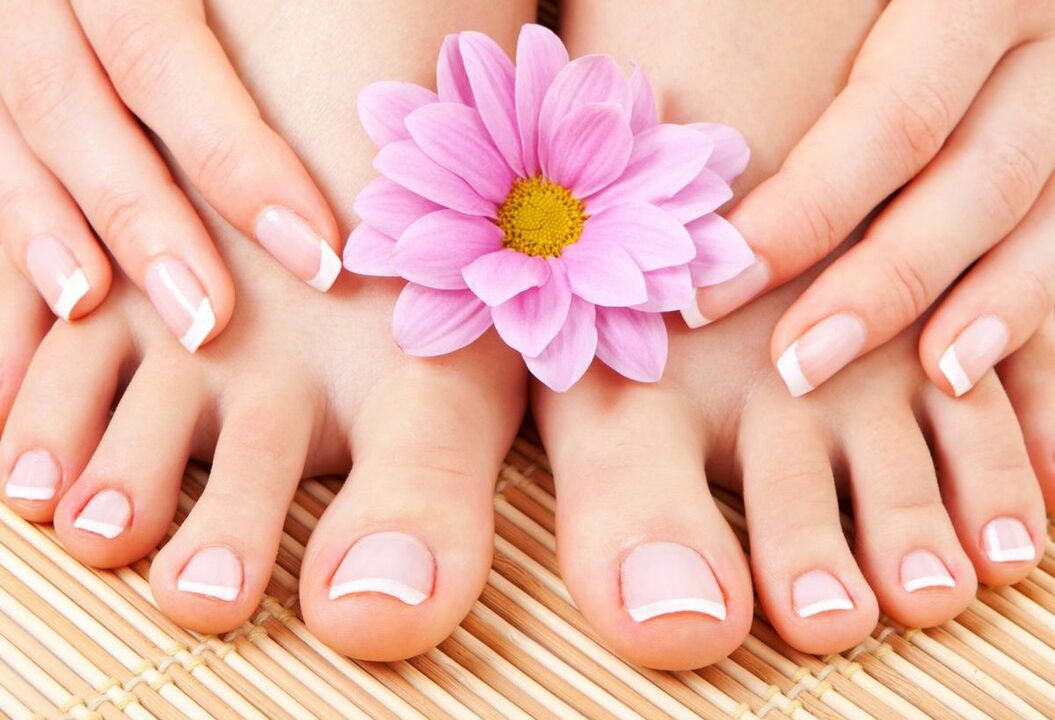
Today we will talk about the treatment and prevention of nail fungus, so that you know how to get rid of it and prevent the recurrence of this disease.
Statistics show that nail fungus occurs in almost every tenth person in the world. This means that this infection is very common and extremely insidious. The disease is extremely unpleasant for the eyes, because areas infected with the fungus look quite repulsive.
If you think that this disease will never affect you, don’t promise it – it’s easy to catch a fungal infection in any public place: on the beach, in a bathhouse, sauna, swimming pool, gym and other crowded places.
Signs and symptoms of nail fungus
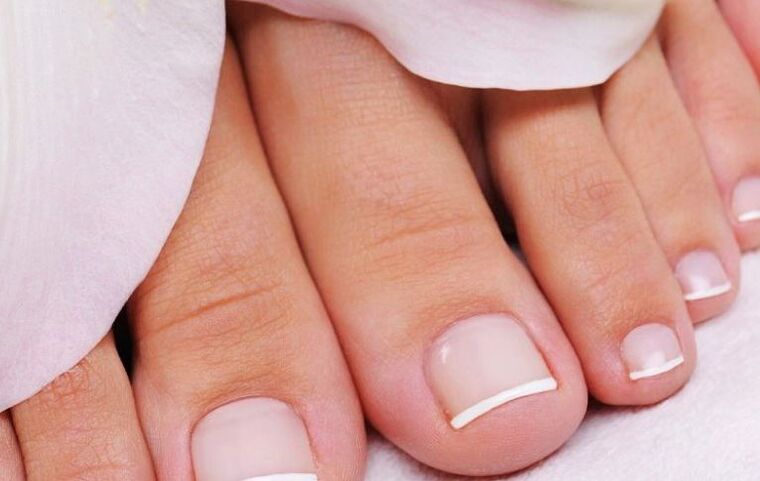
In fact, few people know that fungal infections come in thousands of varieties. But many of them do not cause pain and are not visually visible.
Due to this peculiarity, in the initial stages of the disease, a person who has contracted the fungus may not even be aware of it. But several types of fungi can cause pain around and under the nail.
Note!
Since painful symptoms of fungus are extremely rare, doctors are consulted only in the last, advanced stages of the disease, when there is a change in the color of the nail, its deformation, and detachment of the upper plate. At the last stage, treatment is difficult, so disease prevention must be observed. This will ensure you avoid infection.
For the prevention and timely treatment of nail fungus, it is important to know that there are three stages of development of a fungal infection that affects the nail plate:
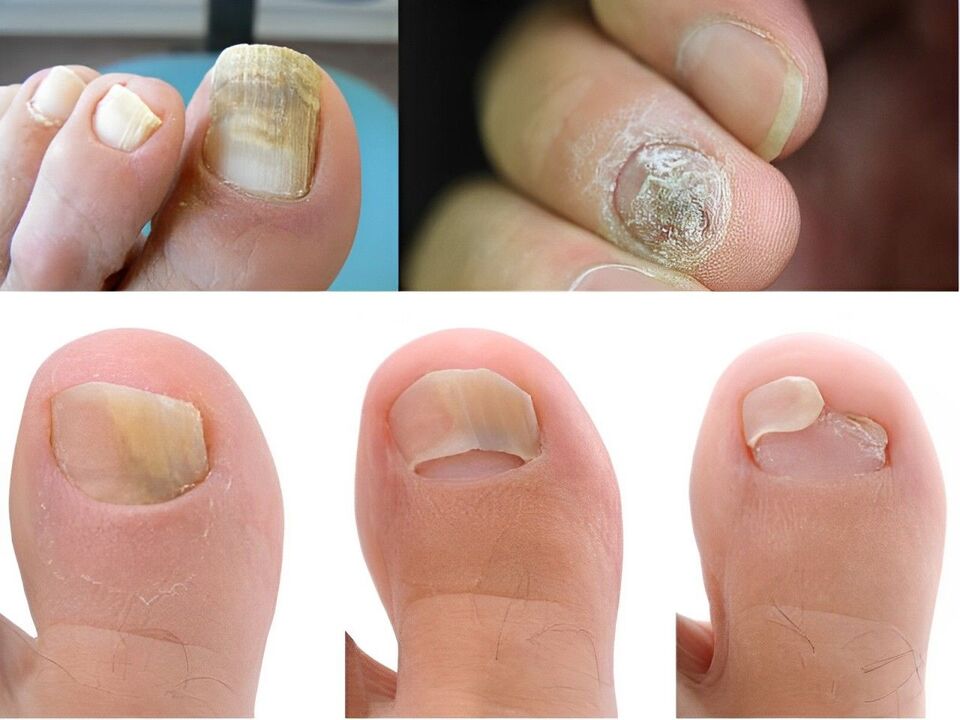
The first stage of the onset of the disease is the absence of clearly expressed symptoms; inconspicuous and barely visible spots and stripes appear on the nails;
Note!
Nail fungus (onychomycosis) can be diagnosed at an early stage only in a hospital, in a laboratory setting. That is why, if you notice the slightest change in the nail plate, consult a doctor immediately!
The second stage of onychomycosis is a change in the color of the nail plate, loss of shine, deformation of its lateral and upper parts:
The third advanced stage of the fungus is severe delamination and brittleness of the nail, which can lead to its complete loss.
In addition, a fungal infection affects the skin around the nail, which is accompanied by unpleasant sensations of itching, burning and pain.
Prevention of nail fungus disease
Every day, without knowing it, we deal with thousands of bacteria around us. But almost all of them are absolutely harmless to us, since the immune system is called upon, like an invisible guardian angel, to protect us from diseases.
Note!
Therefore, the first step in preventing nail fungus is a proper, balanced diet. If the body is saturated with minerals, vitamins, and beneficial substances, the immune system will work only for you.
Movement is life! And this is true, because playing sports and an active lifestyle makes us healthy, strong, and resilient both physically and spiritually. Physical activity prevents diseases of the cardiovascular system.
If blood circulation is impaired, the protective functions of the skin of the hands, feet and nails do not function correctly, which leads to their diseases.
Causes of fungal infection
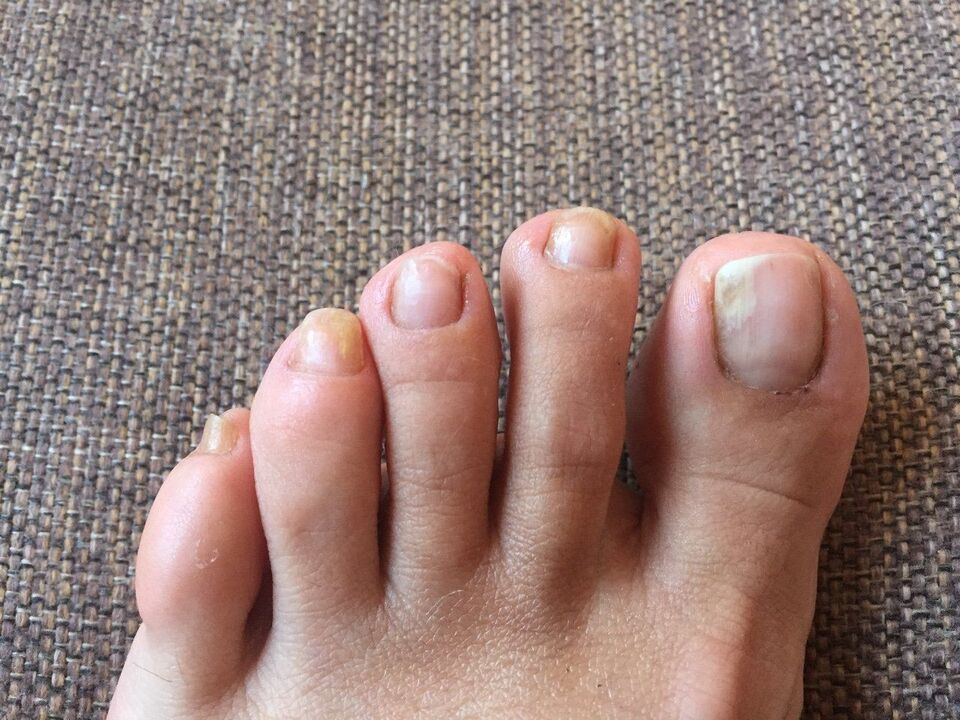
Warm, damp rooms are a breeding ground for bacteria. Therefore, you need to ensure cleanliness in your home, in particular in the bathroom and toilet.
It is important!
When visiting public places: water park, bathhouse, swimming pool, sauna, you need to dress and wear shoes. And then wash thoroughly and take a shower.
In order not to create a favorable environment for the appearance and proliferation of fungus "under your nose, " wear comfortable, preferably natural, shoes, socks, stockings, slippers, tights, etc. Inconvenience when wearing them can cause calluses, corns, sweating, and wounds. This leads to the appearance of an alkaline microclimate - an ideal place for fungus to multiply.
Note!
When visiting beauty salons you need to be attentive and careful. Visit only trusted and recommended places, because we are talking about preserving your health. Having a pedicure, manicure, and nail extensions done by a professional is absolutely safe and simple. Wounds, cuts, poorly performed procedures are the gateway to infections.
It is important to know that you cannot wear someone else’s shoes, as this will harm your health. We strictly observe the rules of personal hygiene.
This is important to know!
The fungus must be treated promptly and thoroughly. The disease does not go away on its own, and time only plays into the spread of the infection, since complications can occur: it can spread from the feet to the stomach, to the groin area, to the skin of the chest, to the armpits.
If anyone in your family has foot fungus, there is a chance that healthy family members will become infected. Maintain personal hygiene more carefully than usual, do not wear other people's shoes, towels, brushes, combs, etc.
Traditional treatment for toenail fungus
It is very important not to start an infection; you should definitely contact a specialist for qualified medical help.
Note!
In combination with pharmaceutical drugs, you can use traditional methods of treating toenail fungus, which are quite effective and will help in getting rid of this unpleasant disease.
Vinegar compress for nail fungus

Ingredients:
- Vegetable oil - two tablespoons;
- Apple cider vinegar - two tablespoons.
Preparation and use:
- Mix vinegar and oil in a 1: 1 ratio, then thoroughly moisten a cotton pad with the resulting solution and apply it to the nail affected by the fungus. We secure the top with an adhesive plaster or bandage.
- Leave the compress on all night and remove it in the morning. We use a vinegar compress to treat the fungus until the affected nail completely replaces the diseased plate with a healthy one.
Antifungal oil
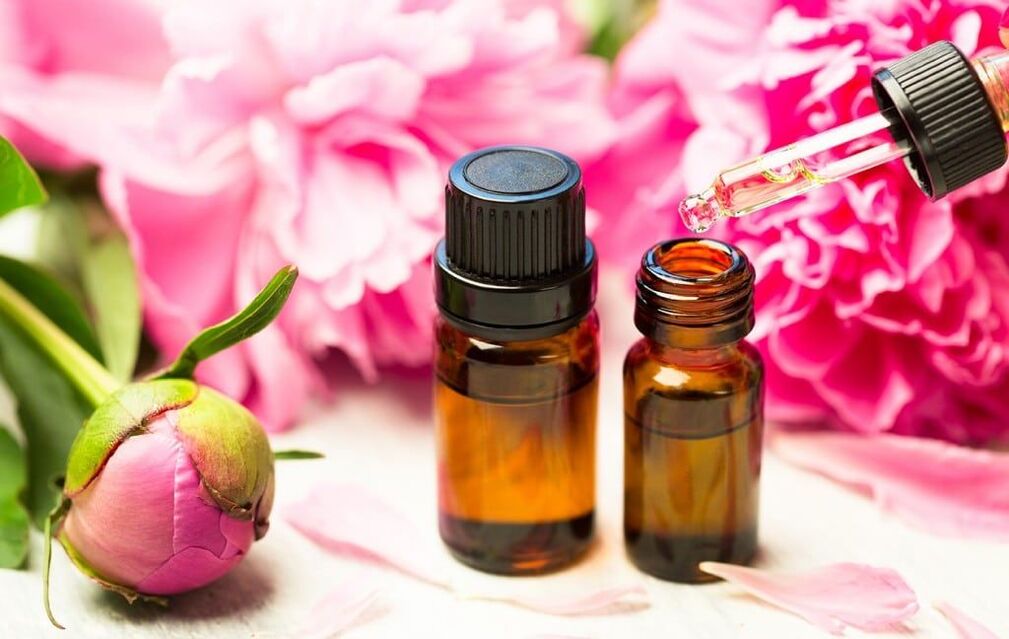
This aromatic natural oil will help fight fungal infections on the feet and nails, soothe irritated skin, and relieve tired feet.
Ingredients:
- Ef. clove oil - 5 drops;
- Ef. cinnamon bark oil - 5 drops;
- Ef. oil - thyme (thyme) - 20 drops;
- Ef. sage oil - 10 drops;
- Ef. lavender oil - 30 drops;
- Tea tree essential oil - 25 drops;
- Jojoba oil - 100 milliliters.
Preparation:
- Pour jojoba oils into a dark bottle, add essential oils to it and mix vigorously for three minutes.
- Place the bottle in a dark place at normal room temperature and leave for a day so that the healing oil ripens.
After this time, the aromatic antifungal oil is ready.
How to use:
Wash your feet well and dry them. Shake the oil in the bottle well and apply a few drops to both legs. Even if the fungus has affected one foot, then we also apply a healing agent to the second foot for preventive purposes.
Apply the oil to your nails and between your toes, massage the skin a little and wait until the oil is absorbed. Then we put cotton socks on our feet.
Use the medicated oil two to three times a day; it can also be applied to acne and wounds. The oil can be stored for up to two years in a cool place.
Tea mushroom

This is a simple and very good remedy for treating fungus.
This is useful!
Before going to bed, it is recommended to make compresses from a strong infusion of kombucha, and the longer the mushroom is infused, the better.
For the procedure: you need to steam your feet in warm water and apply a compress of kombucha and secure with a bandage. Leave it overnight and remove it in the morning. The course of treatment is four weeks.
Another treatment option: pinch off a small piece of kombucha, remove the film from it, and mash the peeled part to a paste. Rub the resulting mass into the affected areas three times a day. It is important that for each procedure you need to take a fresh piece of mushroom.
Baths with celandine decoction
Baths with a decoction of celandine help very well.
- The ratio of grass to water is 2: 3. Add the required amount of celandine and water and boil for 3 minutes.
- Strain the broth and steam your feet for half an hour.
- Make lotions from the same decoction on the affected areas.
Baking soda
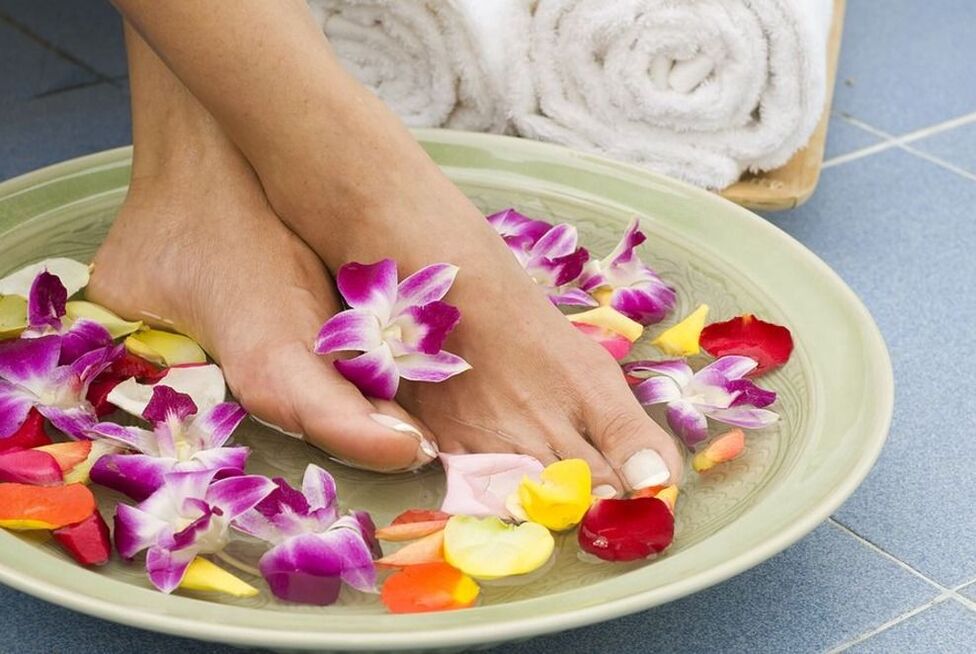
The use of baking soda is effective.
- Therapeutic procedures: apply soda lotions and steam your feet in a soda solution.
- Soda solution recipe: for three liters of hot water, one tablespoon of soda. Mix the soda well until it is completely dissolved.
- You need to thoroughly steam your feet in a soda solution, then wipe them dry with a clean towel and spread them with celandine oil, which is sold at the pharmacy.
You can, after a soda bath, moisten a cotton swab with celandine oil, place it between your toes and secure with a band-aid. We put a sock on top. We maintain this bandage for 20 minutes.
The procedures should be carried out twice a day for one month.
Fungus ointment - recipe No. 1
Preparation: wash the chicken egg and pour vinegar over it. Keep in a dark place until the shell is completely dissolved. Throw away the film, mix the vinegar with the rest of the egg and mix this mass with butter.
Application: The resulting ointment should be applied to the areas affected by the fungus in the morning and evening. Do this until complete recovery, after which you can use the ointment for preventive purposes.
Fungus ointment - recipe No. 2
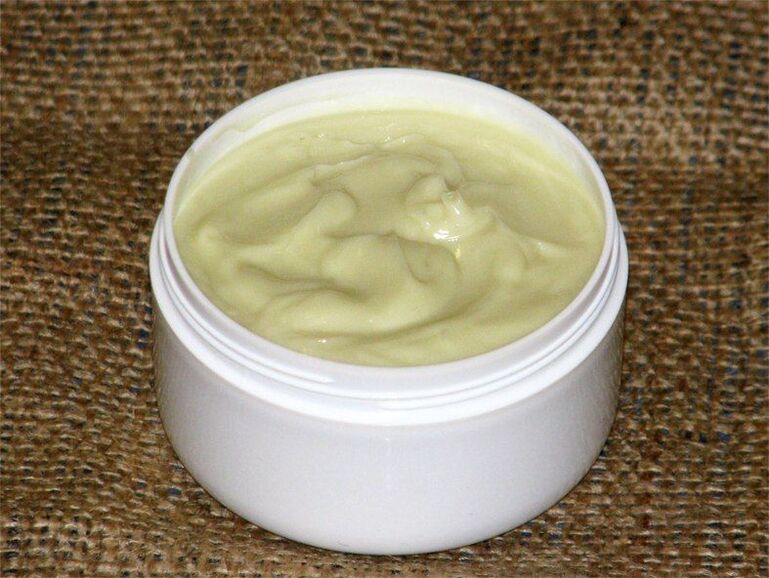
Ingredients:
- One raw chicken egg;
- One tablespoon of vegetable oil;
- One tablespoon of vinegar 70% essence.
Preparation:
Mix all the ingredients thoroughly and the healing ointment is ready. We store it in the refrigerator and use it as needed.
Application:
- We steam our feet, wipe them dry and apply ointment to the areas affected by the fungal infection.
- You need to put a plastic bag on top and secure it with a bandage or put on socks.
- Do the procedure at night and keep it until the morning.
The course of treatment is 30 days.
Fungus ointment - recipe No. 3
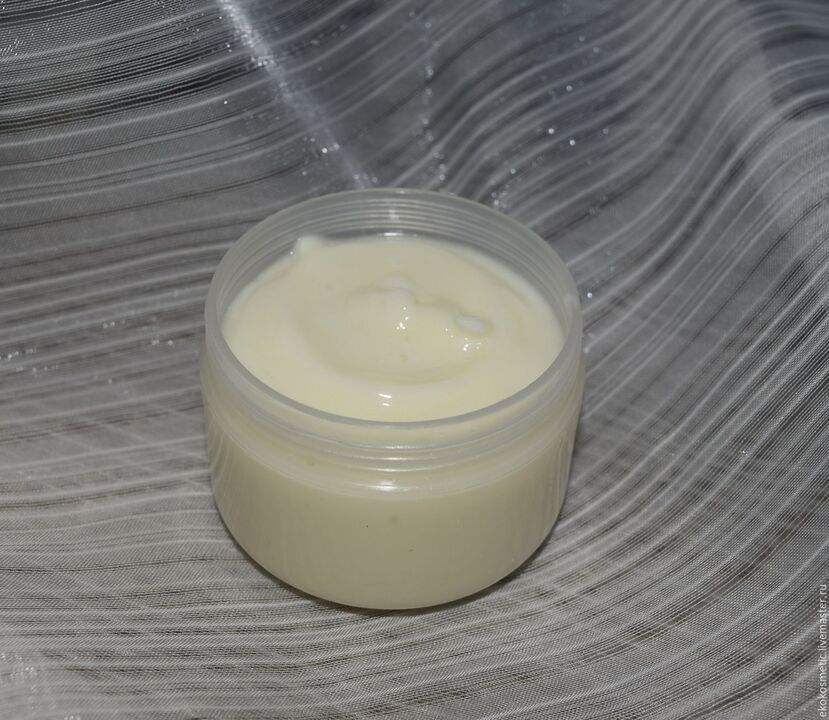
Another folk method for treating toenail fungus using an easy-to-prepare and very effective ointment based on vinegar essence.
Ingredients:
- Raw chicken eggs (preferably from domestic chickens) - 2 pieces;
- Vinegar essence 70% - 1 glass;
- Butter - 200 grams.
Preparation of ointment:
- Wash the eggs, put them in a half-liter jar and fill them with vinegar essence so that it covers the contents in the jar.
- Place the jar in a dark place for 10 days, during which time the egg shells will completely dissolve in the essence.
- We take the eggs out of the jar with a fork, remove the film, put them in a bowl and add softened butter (take the butter out of the refrigerator in advance).
- Mash the eggs with a fork and mix them with the butter. We should get a homogeneous mass similar to sour cream. Add three tablespoons of acetic acid from the jar in which the eggs were placed to the mixture and mix again.
Store the finished ointment in the refrigerator.
Application:
- Wash your feet and wipe dry, lubricate the affected areas with ointment and let dry for five minutes. The ointment will be quickly absorbed, then put on clean socks and go to bed.
- Use for a month, every day at night. Then, when you feel that the disease is passing, you need to smear it once a week.
As a result of treatment, feet and nails will become clean and healthy, itching and diaper rash will disappear, and the skin will become smooth and healthy.
Antifungal baths

Such therapeutic baths can be done daily with the addition of a weak solution of vinegar, potassium permanganate, soda solution, and a solution of essential oils.
Note!
Prevention of fungal nail infections should be carried out regularly to avoid recurrence of the disease.
Eucalyptus and Kalanchoe
Kalanchoe juice, eucalyptus oil or eucalyptus tincture also helps well in treating nail fungus. Their use is quite simple: you need to lubricate the affected areas three times a day until recovery.
Essential oils for foot fungus
Traditional methods of treating toenail fungus with essential oils have proven themselves quite well in practice, as they have good antifungal properties.
Oils to use: tea tree, lemon, fir, sandalwood, patchouli.
Contraindications: individual intolerance, pregnancy.
Tea tree oil
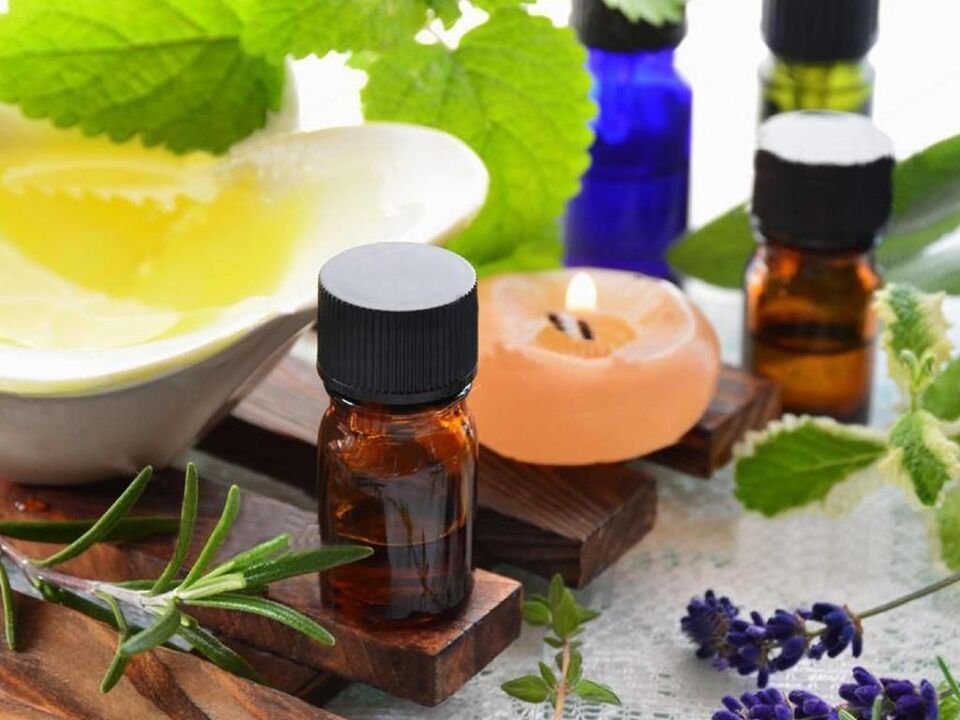
Let's look at the main points of using essential oils using tea tree as an example. This recipe can be used with other oils.
Baths - method No. 1
- In one liter of hot water we need to dilute 20 drops of oil and one teaspoon of shower gel.
- Take baths for 20 minutes until the water cools down. The procedure must be carried out every day until complete recovery.
At the end of treatment, preventive baths with tea tree oil (or other oil) once a week are recommended.
Rubbing oil - method No. 2
Rub essential oils into the nail plates affected by fungal infections using cotton wool.
To carry out the procedure, you need to wash your feet well with laundry soap and wipe them dry. Then rub the oil into the affected areas and leave to absorb. There is no need to wash your feet after rubbing in for the oil to have a healing effect.
Note!
Lemon essential oil is also good to use for the described procedures; it helps against infections and does not stain the nails dark, maintaining their natural appearance.
The duration of treatment is three or even four months, it all depends on the patient’s immunity and the stage of the fungus.
Alcohol tincture of propolis
At the pharmacy, purchase a 20% tincture of propolis in alcohol, which you apply to the sore nails using a cotton swab. Perform this procedure daily.
Soon you will see the result: the diseased nail will go away and a new one will grow.
Sea salt

Take sea salt baths daily for a week. Lubricate your feet with fresh celandine juice three times a day for 3 months.
Treatment of fungus with iodine
Every day for 3 weeks, morning and evening, apply a drop of iodine to sore nails. Be sure to treat neighboring nails (outwardly healthy ones) as well.
After about a week or a little earlier, a slight burning sensation and soreness around the nail may appear - a sign of successful treatment. For severe pain, apply iodine less often.
Table salt with mint
The healing properties of ordinary salt will help in the treatment of nail fungus.
For preparation:
- Mix finely chopped mint with salt in a 1: 1 ratio.
- The resulting pulp should be placed on the affected nail plates and between the toes.
Repeat until the infection is completely cured.
Pharmacy ointments and preparations
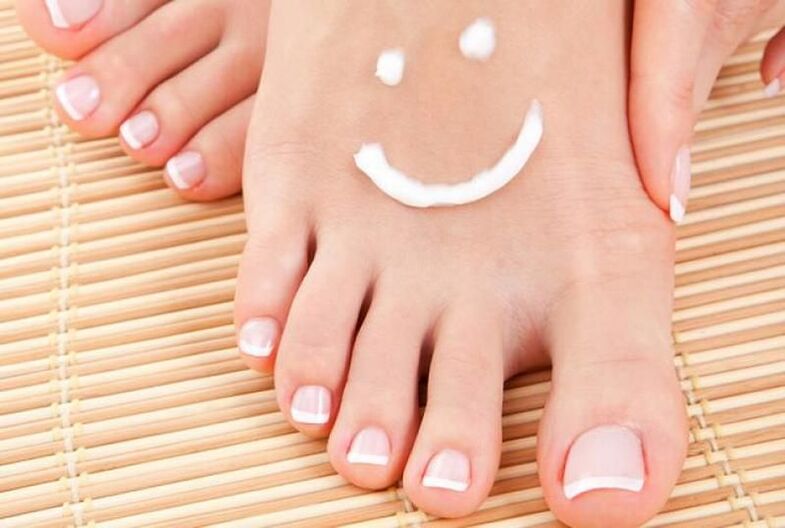
For the treatment and prevention of nail fungus, in combination with folk remedies, it is good to use effective pharmaceutical drugs, this will allow you to quickly cure the disease and prevent its recurrence.
Salicylic ointment
This pharmaceutical drug is often used in the treatment of various skin diseases: lichen, acne, diaper rash. This ointment also helps with fungal infections. It contains 25% salicylic acid.
Method of use: smear the affected areas 2 - 3 times a day.
Zinc ointment
Another inexpensive "folk" drug that is sold in pharmacies. The ointment contains zinc oxide and petroleum jelly.
Zinc ointment has no contraindications; it can be used by women during pregnancy and nursing mothers, as well as children. This medicine should be applied to the affected area up to 5 times a day. However, if the degree of fungus is not very severe, the number of applications can be reduced.
Sulfuric ointment
This drug contains sulfur from 10 to 33% and is a good remedy for treating foot and nail fungus. For treatment, it is better to take a 10% solution. The medicine should be applied 1-2 times a day. The course of treatment is one week.
Can be used in the treatment of skin diseases in young children.
Note!
Before using traditional methods of treating toenail fungus or any other medications, consult your doctor.
Treatment and prevention of nail fungus takes time and a lot of effort; you need to be patient and not wait for a speedy recovery.
It is important to know!
Nail fungus is unusually tenacious and very quickly develops immunity to the substances included in antifungal drugs. Therefore, if you are infected with it again or the last time was not treated, the previously used drug will be useless. You should purchase a drug with a completely different principle of action.
It is recommended to consult a doctor in a timely manner for diagnosis, not to let the disease progress, to start treatment on time, to complete it, in this case you will forget about such an unpleasant disease as nail fungus.
Be healthy!


























